Annular solar eclipse of 2023 wows skywatchers with spectacular 'ring of fire' (photos, video)
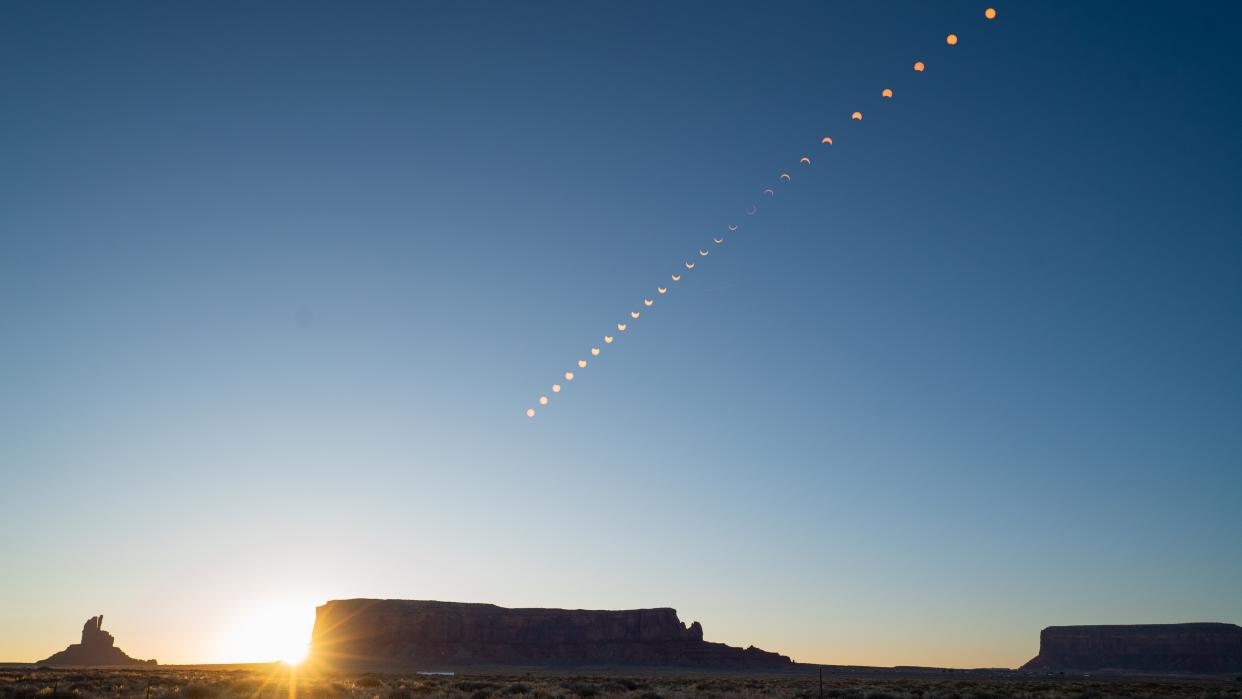
An annular solar eclipse wowed skywatchers across the Americas today with an impressive "ring of fire".
Sweeping through eight U.S. states before heading over Mexico, Guatemala, Belize, Honduras, Nicaragua, Costa Rica, Panama, Colombia and Brazil, the impressive eclipse was visible to millions of people.
Many turned their cameras to the sky to capture the phenomenon in all its glory and we've rounded up some of the best photos here.
Related: What's the difference between a total and annular solar eclipse?
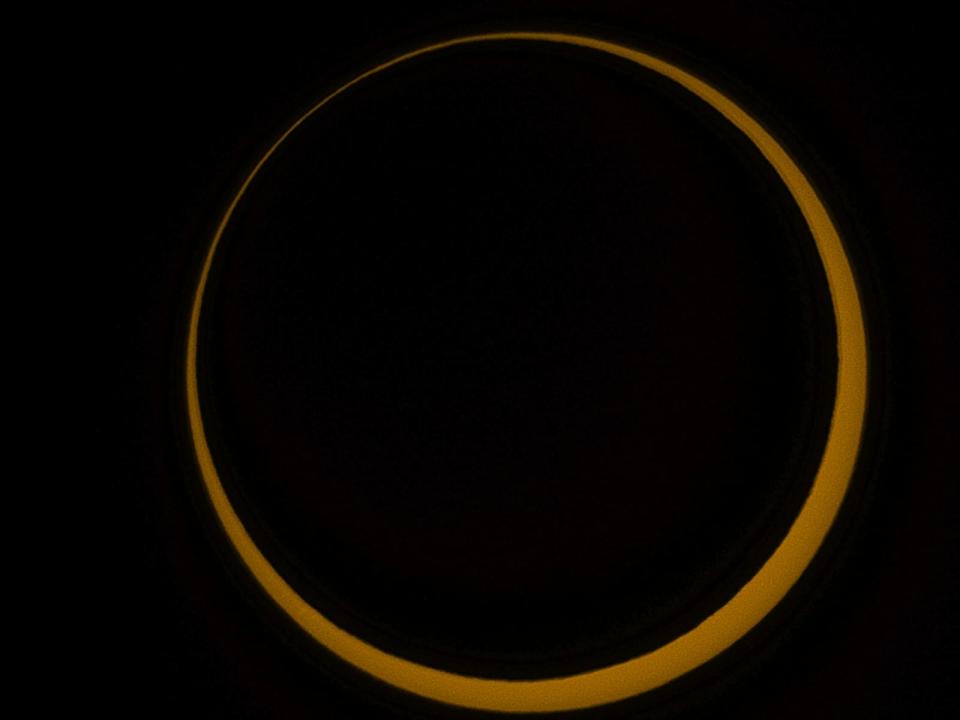
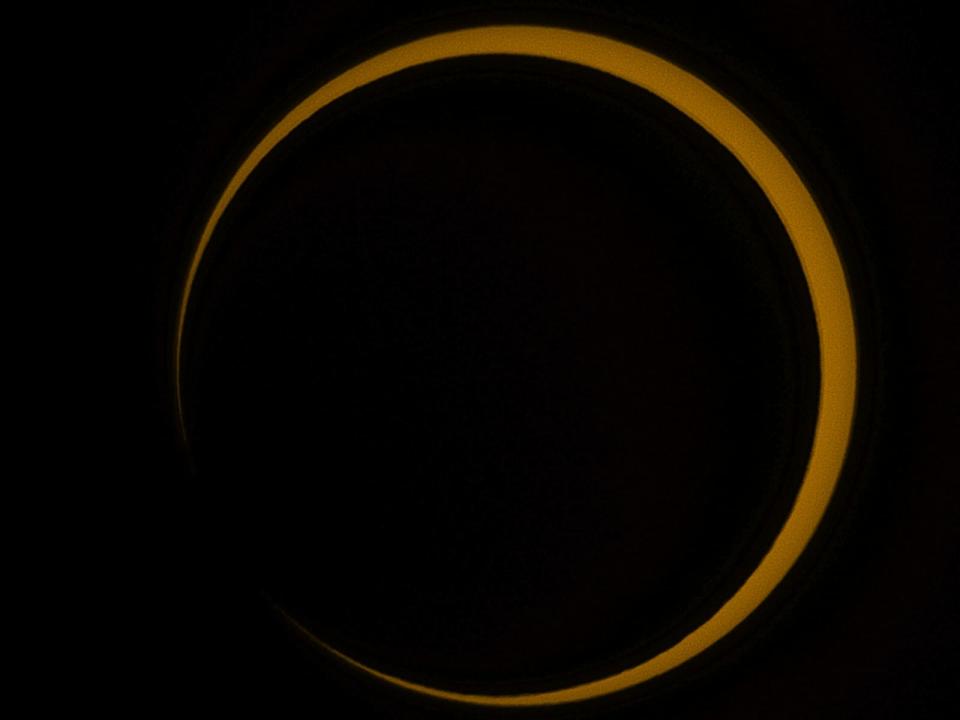
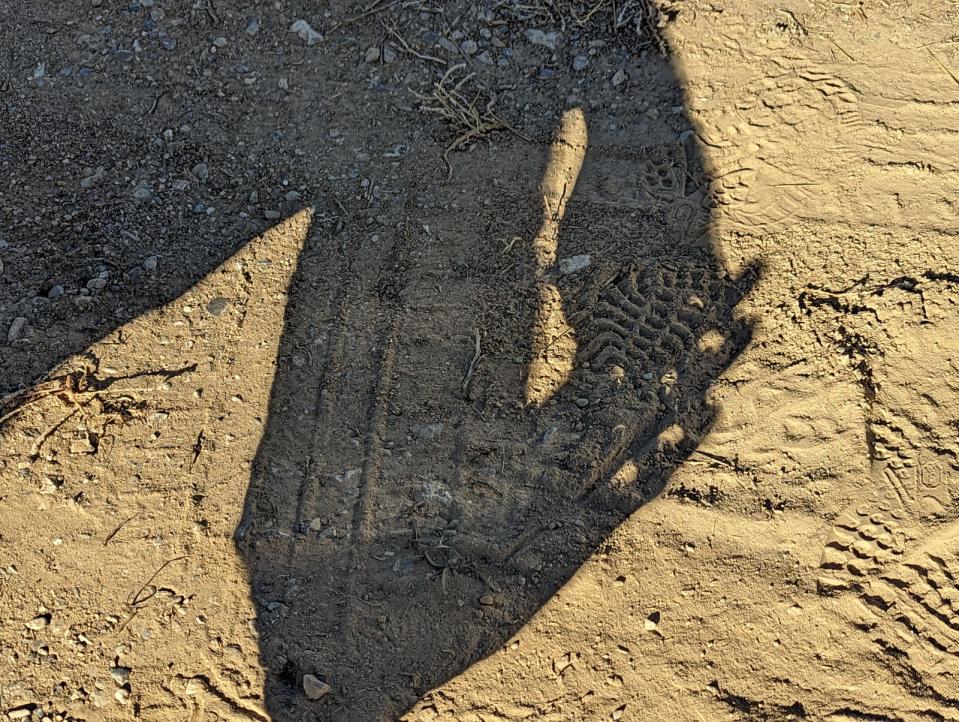
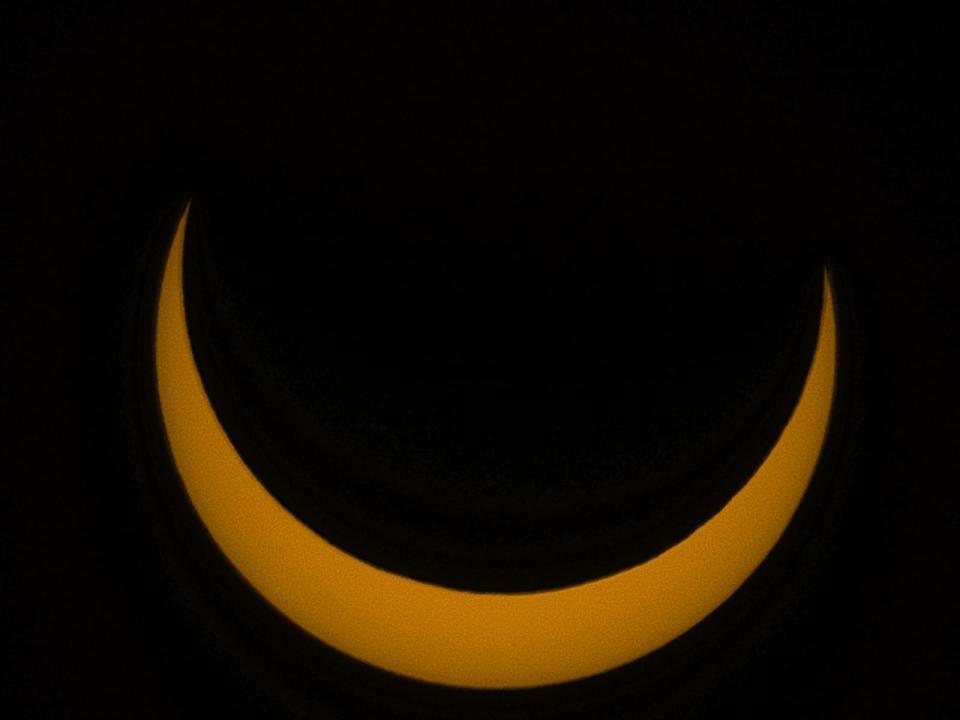
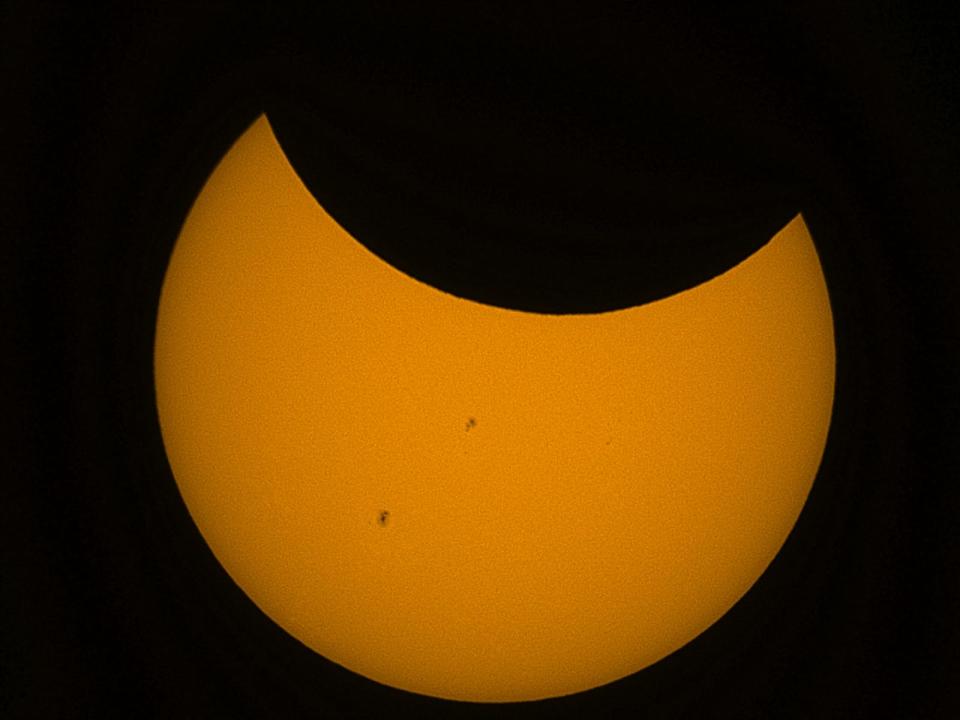
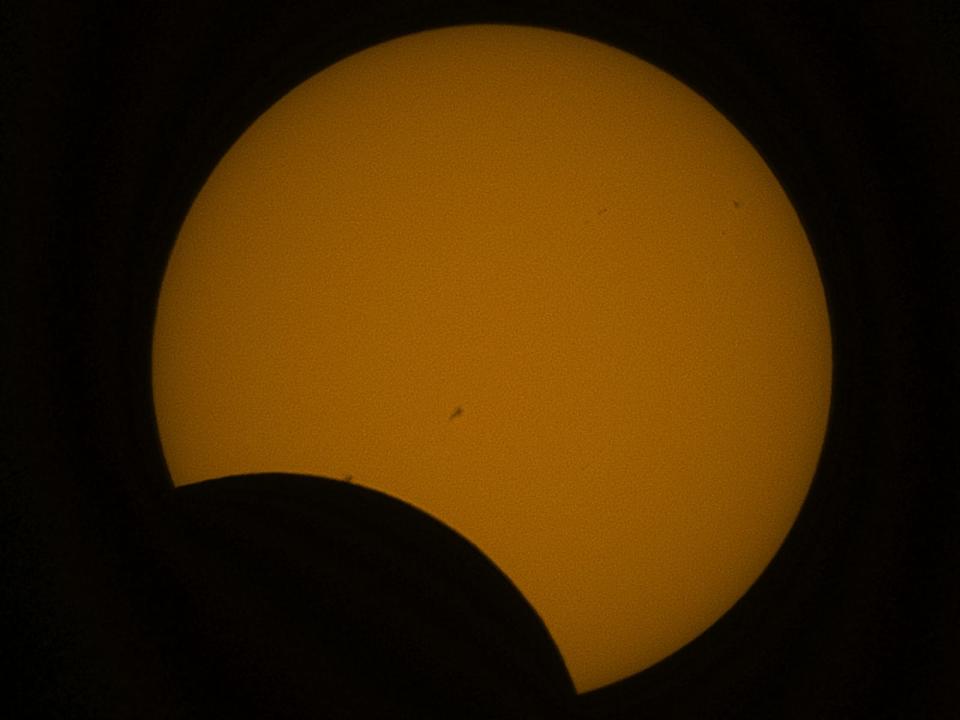
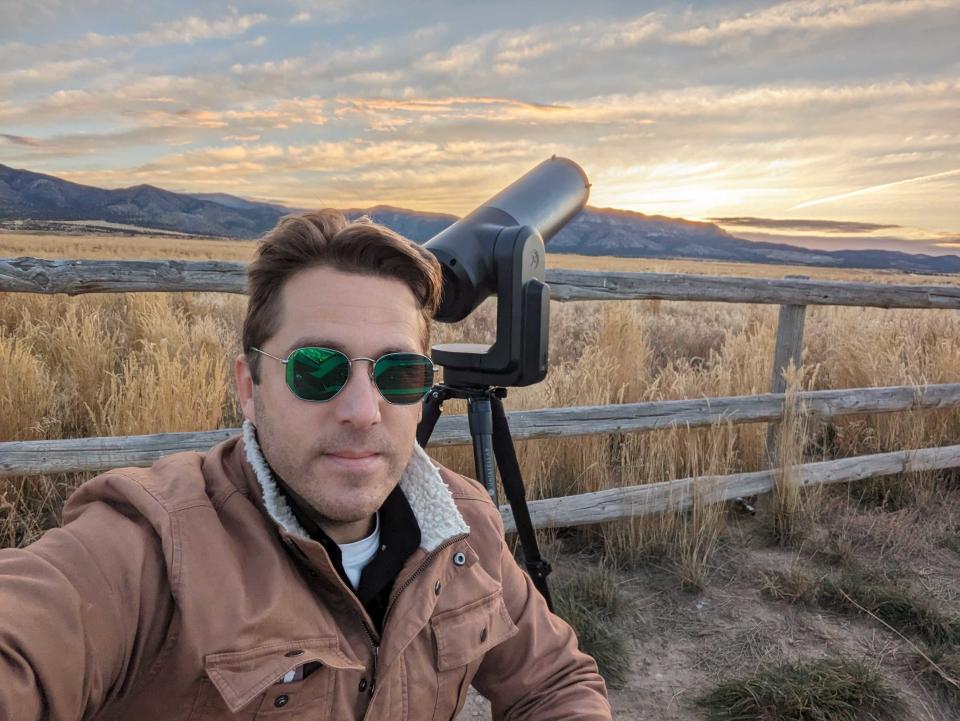
VIEW ECLIPSES SAFELY!

If you're looking for safe optics to view the eclipse, we recommend the Celestron EclipSmart 2x Power Viewers, which have 2x magnification or this travel-friendly solar telescope. You can also consult our guide to photographing the solar eclipse.
Space.com Editor Brett Tingley observed the solar eclipse from Great Basin National Park in Nevada on an expedition arranged by Travel Nevada. Initially, clouds threatened to ruin the view, he said.
"As the clouds begin to part, the crowds here at Great Basin National Park let out audible sighs of relief as the sun and the moon emerged back into view some 30 minutes after the eclipse began," Tingley said.
The sky was clear for the actual moment of annularity, when the moon left just a ring of sunlight around its edge. Tingley captured the moment, and the partial phases of the eclipse, with a Unistellar eQuinox 2 telescope equipped with a solar filter.
"Just incredible," Tingley wrote on X, formerly known as Twitter, while sharing the view. As it happened, Tingley noticed the environment around him change in the dimmed sunlight.
"The light is beginning to change as more and more of the sun is blocked by the moon. The temperature has dropped slightly," he said.
Tingley wasn't the one watching the solar eclipse spectacle, which was potentially visible to millions of spectators across the United States, Central and South America. A partial solar eclipse was visible, weather permitting, from much of the Americas, with the 125-mile path of annularity crossing parts of Oregon, Utah, Nevada, Idaho, Colorado, New Mexico, Arizona and Texas, before moving on to Mexico and southern countries, ending in Brazil.
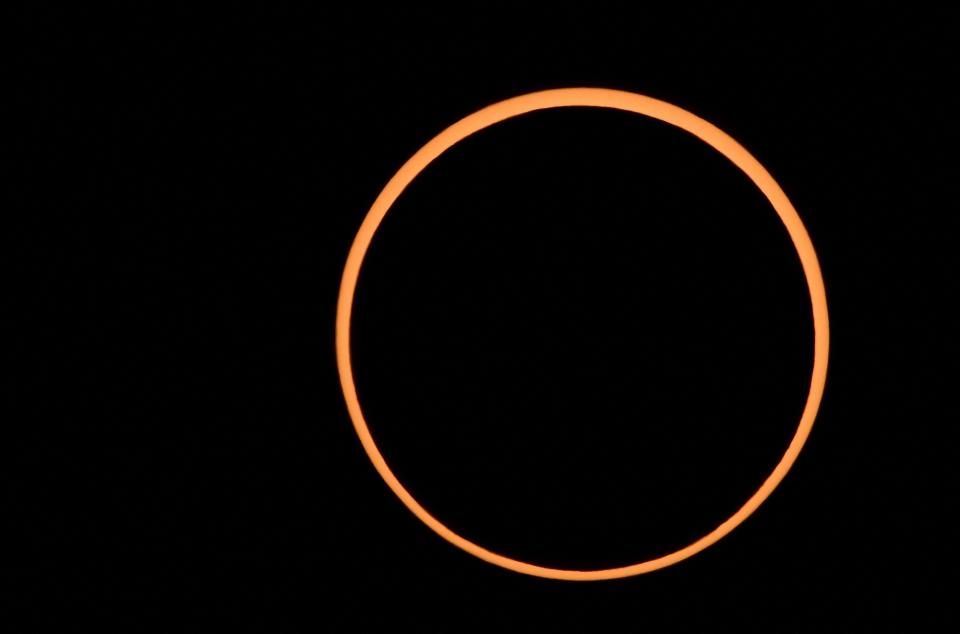
Photojournalist Patrick Fallon captured this stunning view of the "ring of fire" effect of the annular solar eclipse while documenting the view from Albuquerque, New Mexico, which NASA used as one of its base of operations for its eclipse livestream.
The photo, which used a solar filter to capture it, was shared by AFP and Getty Images.
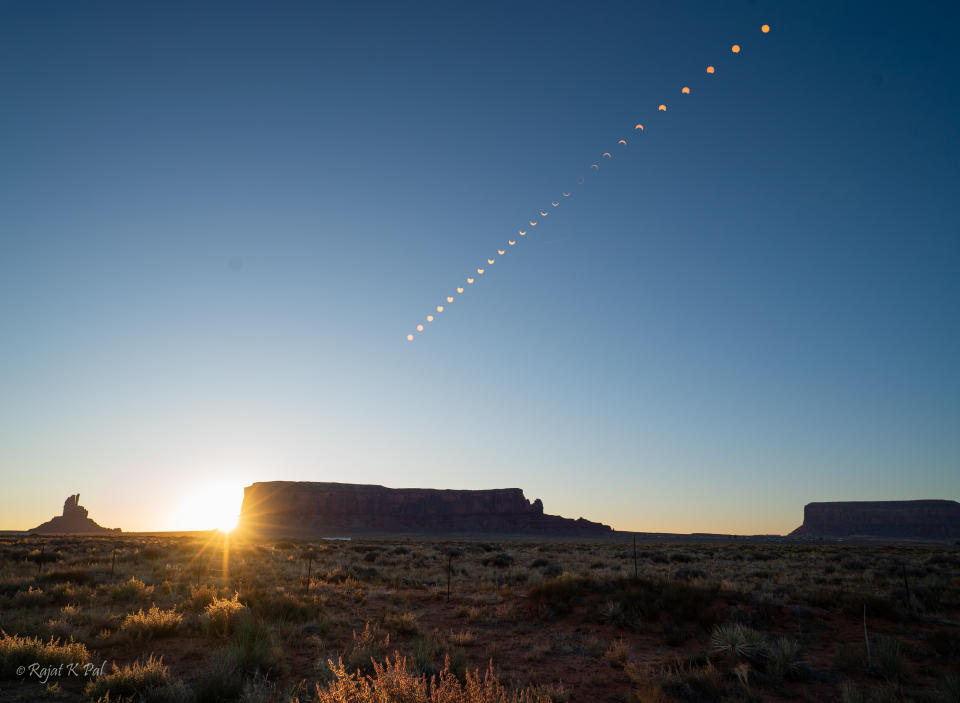
Rajat Kumar Pal took captured this stunning composite image of the annular solar eclipse at Monument Valley, Utah.
"The foreground picture is taken just right after the sunrise, where it is seen at the left of the Sentinel Mesa." Pal told Space.com in an email. "I kept this as a foreground image because it shows a beautiful diffraction of the sun rays at the mesa wall and also gives an idea where the sun has risen today. The annularity is captured in the clean blue sky in the middle of the beautiful Monument Valley and its monuments and mesas."
The image shows the impressive variety of stages the annular solar eclipse passes through as it leads up to annularity or the "ring of fire" and away again.
"It was a beautiful time enjoying the eclipse in the serene company of my wife and other eclipse enthusiasts." Pal continued.
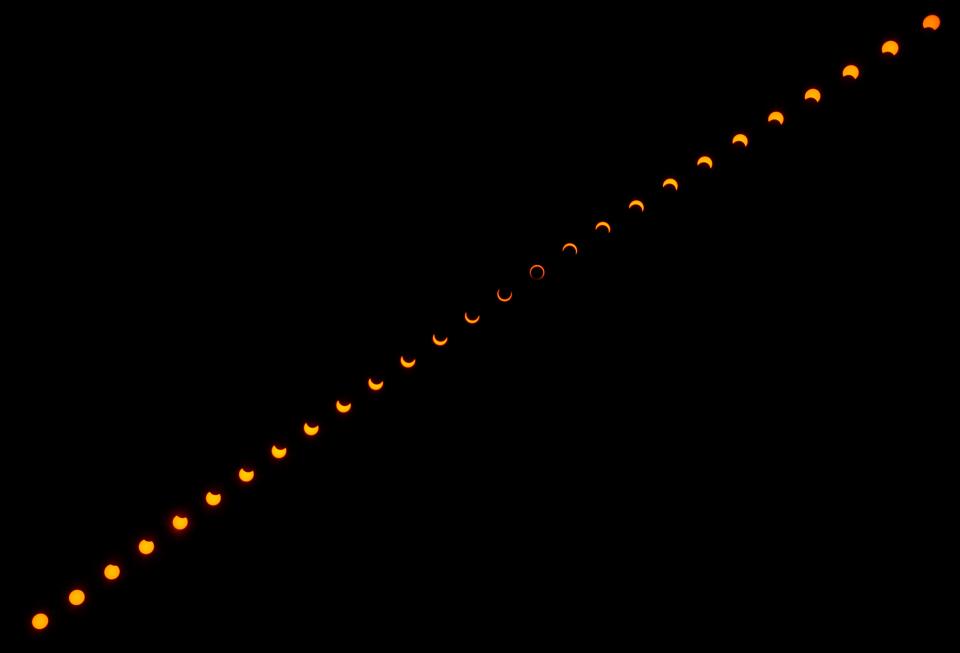
Annular solar eclipse from Albuquerque, New Mexico.
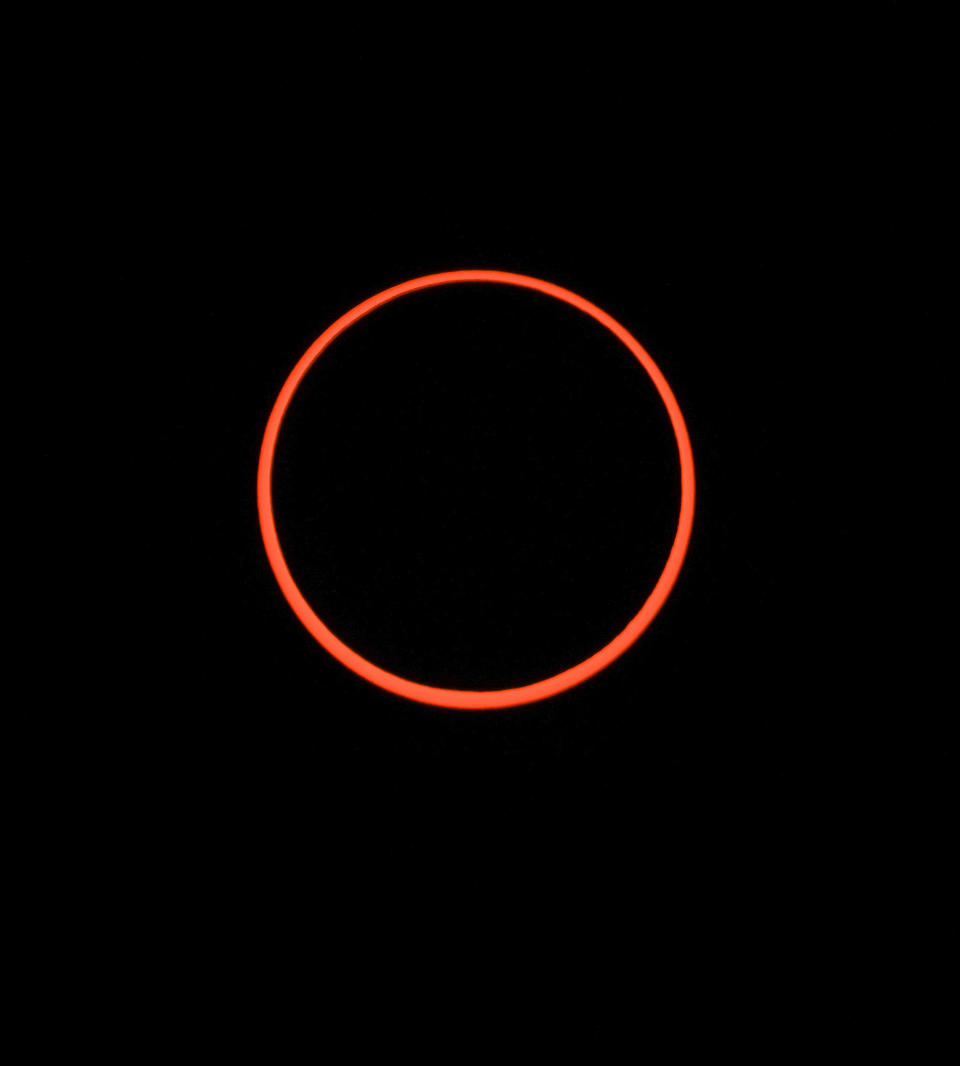
Annular solar eclipse from Albuquerque, New Mexico.
Photographer John Melson watched the annular solar eclipse from the International Balloon Fiesta in Albuquerque, New Mexico and had a spectacular view of the eclipse.
Melson combined about 30 images for the composite image.
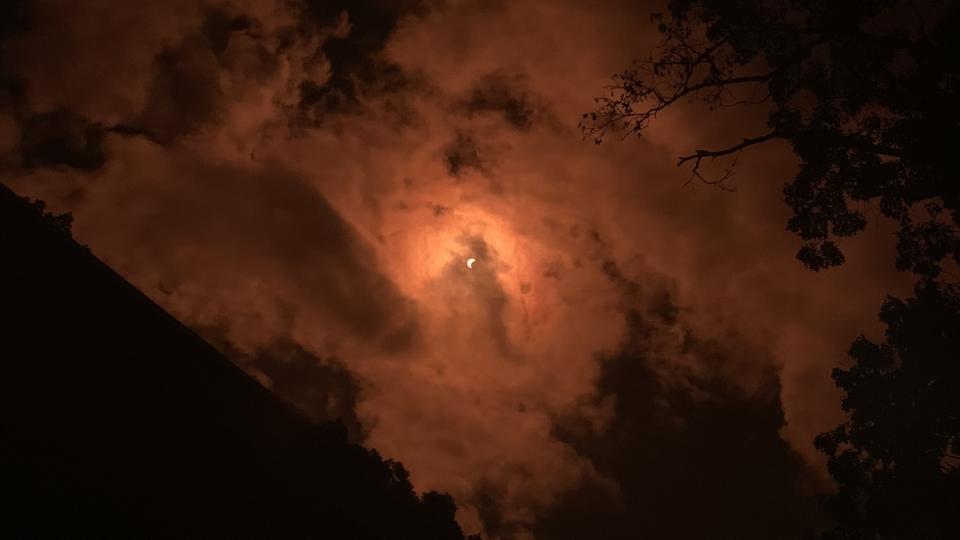
Whitney Husz captured this otherworldly scene using a solar filter over the lens of an old iPhone. Husz witnessed the eclipse at 2,800 feet in the Appalachian Mountains.
"It was cloudy, so much time was spent waiting for the perfect gap in the clouds, but it couldn't be too big a gap because then the light would blow out the image," Husz told Space.com in an email.
"Today (shooting these images) would have been my later brother's 40th birthday and it’s been a gift to share time with the celestial bodies, wondering if he may be up there peeking back at me," Husz continued.
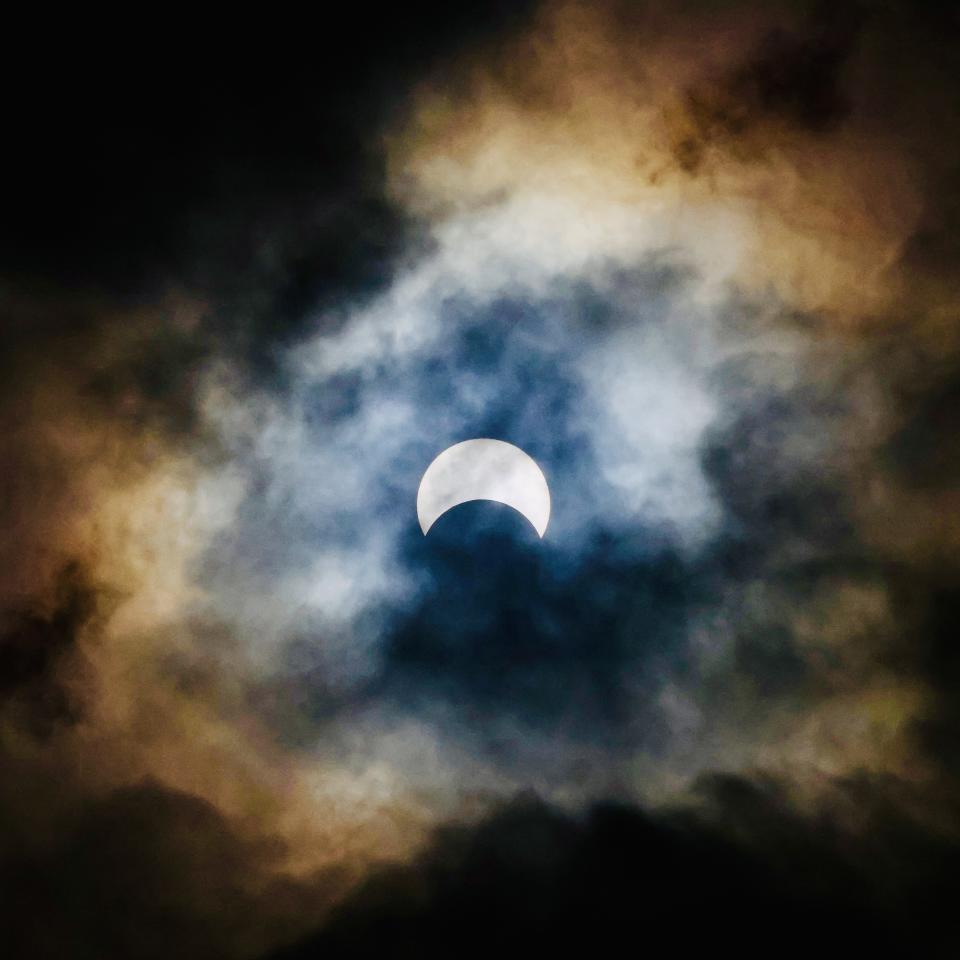
Andrew Chung also didn't let the clouds get in the way of capturing an awesome eclipse from Jackson Hole, Wyoming, U.S.
"I felt a sense of hope and optimism when the eclipse emerged from behind the clouds with this unexpected burst of radiant light and colors." Chung told Space.com in an email.
"It's amazing to me how the earthly clouds, moon, and sun came together to create such beauty — gives me hope that humankind can do the same thing during these divisive times," Chung continued.
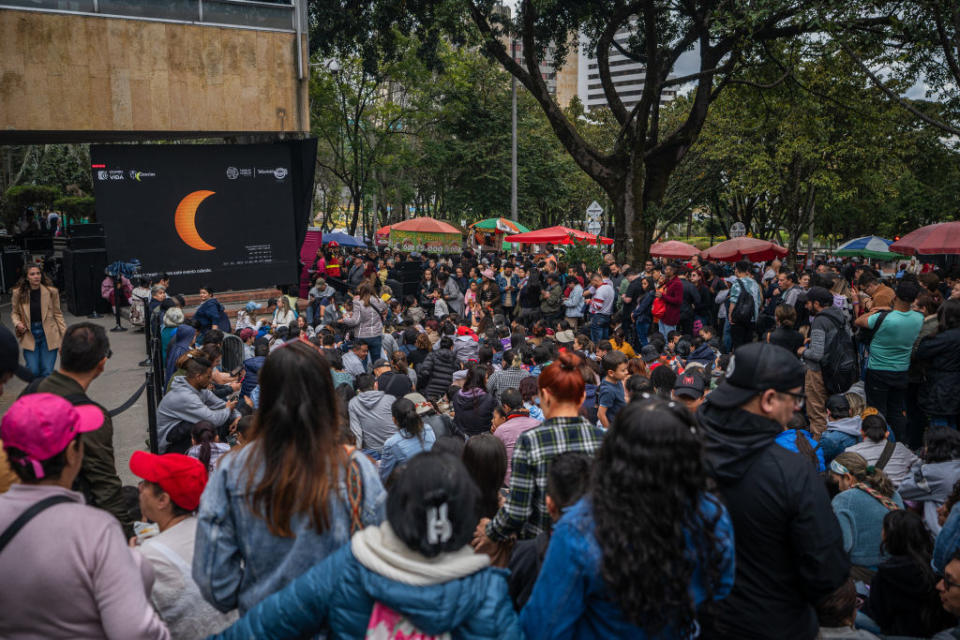
Photographer Diego Cuevas captured this photo of excited skywatchers gathered to watch the eclipse at the Planetarium of Bogota, Colombia.
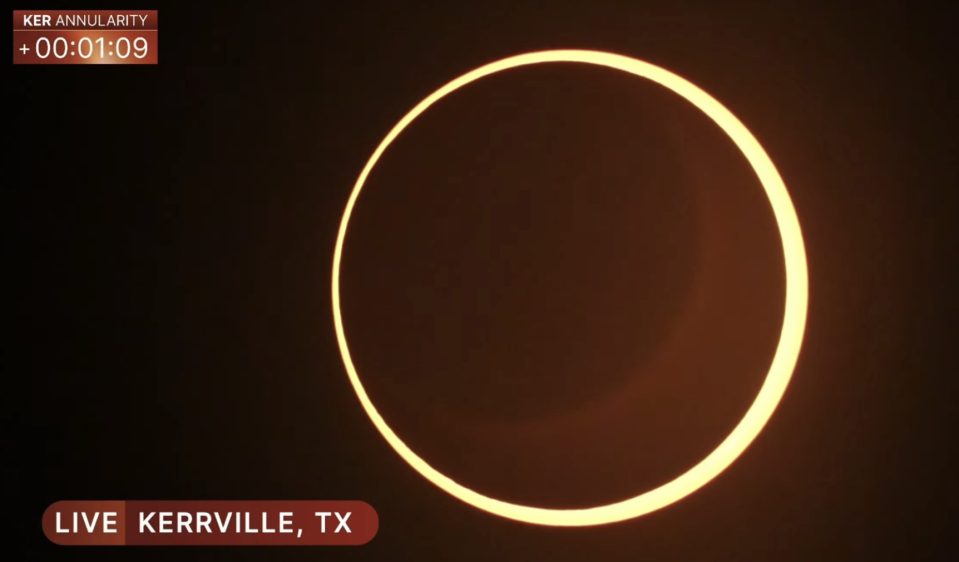
NASA scientists used telescopes based in Albuquerque and Kerrville, Texas in that state's panhandle as observing stations for the solar eclipse.
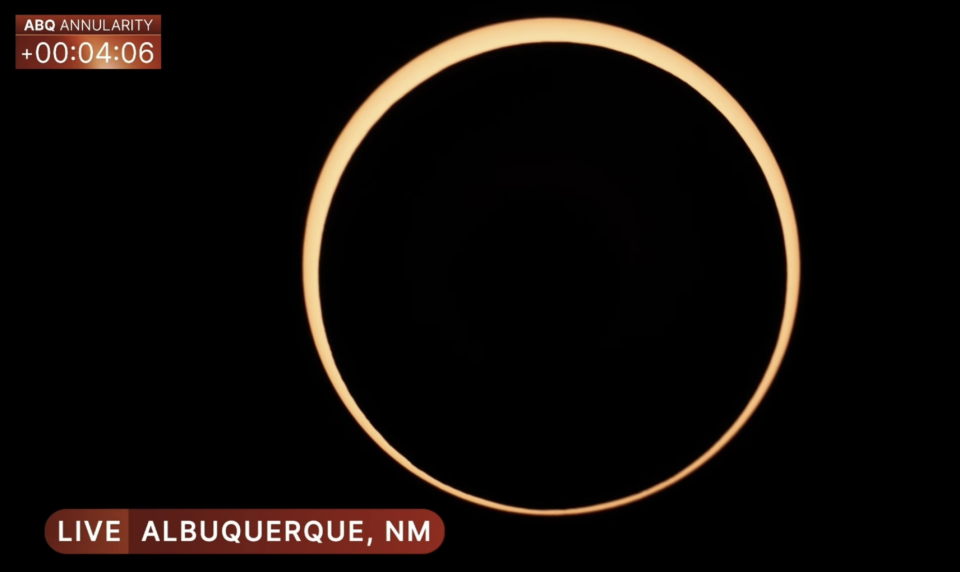
NASA scientists used telescopes based in Albuquerque and Kerrville, Texas in that state's panhandle as observing stations for the solar eclipse.
NASA scientists used telescopes based in Albuquerque and Kerrville, Texas in that state's panhandle as observing stations for the solar eclipse.
In Kerrville, they enjoyed over four minutes of annularity, one of the longest periods for the eclipse.
NOAA's GOES-East and GOES-West satellites tracked the shadow of the moon as it crossed the United States and the Western Hemisphere overall from their orbits high above Earth.
NOAA shared the stunning views on X, but you can see them combined in the video.
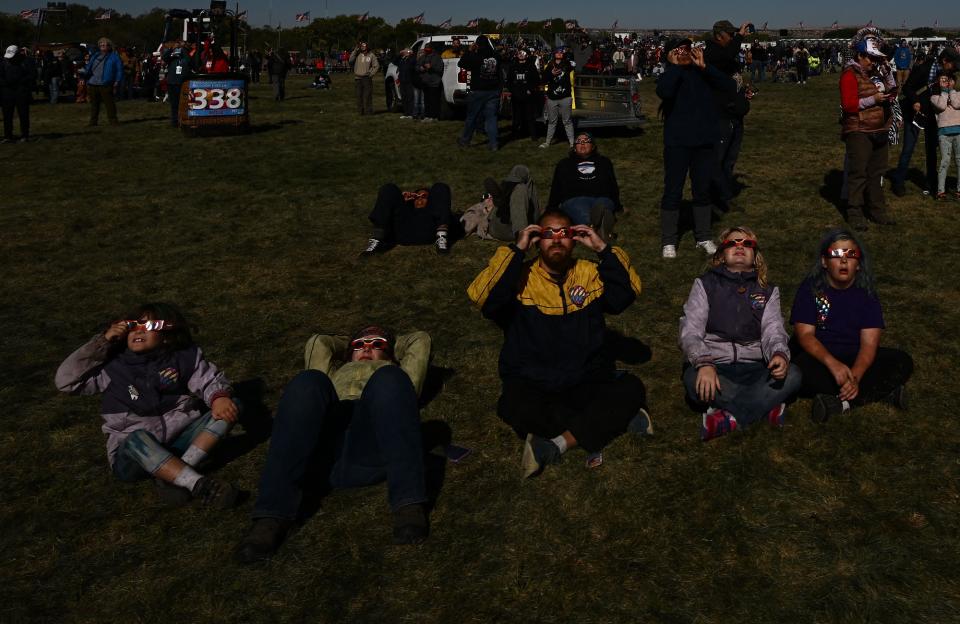
With the annular solar eclipse passing over many large cities across the U.S., some communities combined observing events with other festivals or celebrations.
Here, AFP photographer Patrick Fallon captures a crowd of spectators with their solar eclipse glasses on as they watch the eclipse from the 51st Albuquerque International Balloon Fiesta in Albuquerque.

Allen Berman sent us this stunningly moody photo of the eclipse over the Academy of Motion Pictures Arts & Sciences Library in Beverly Hills, CA.
"We got about 70% coverage of the sun," Berman told Space.com in an email. "But, I brought a bunch of eclipse glasses for passers-by. They were thrilled as was I."
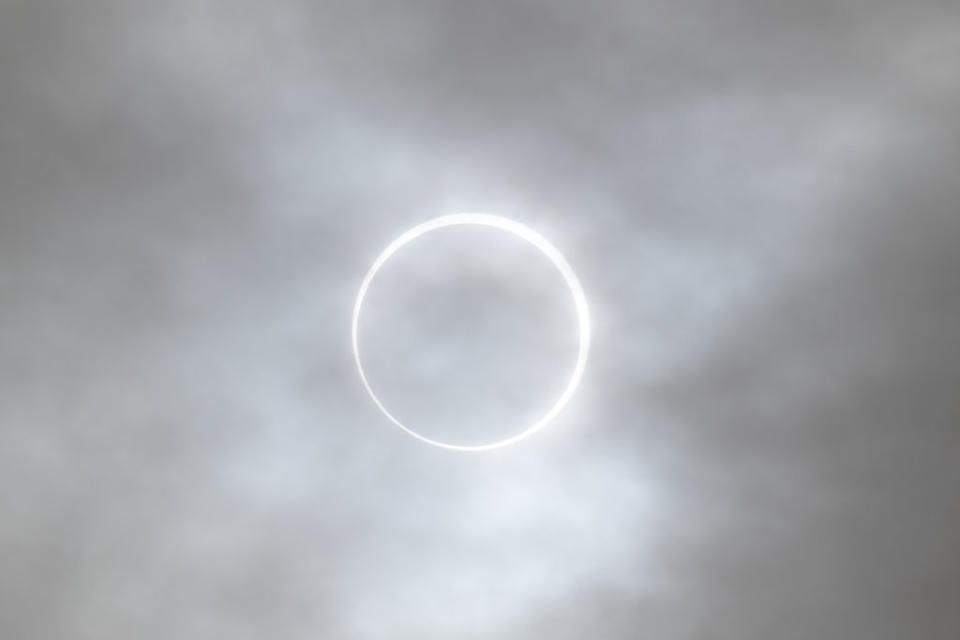
Here the annular solar eclipse shines through some thin clouds to give us a dramatic view of the "ring of fire". Photographer Tayfun Coskun captured this image for Anadolu Agency and Getty Images.
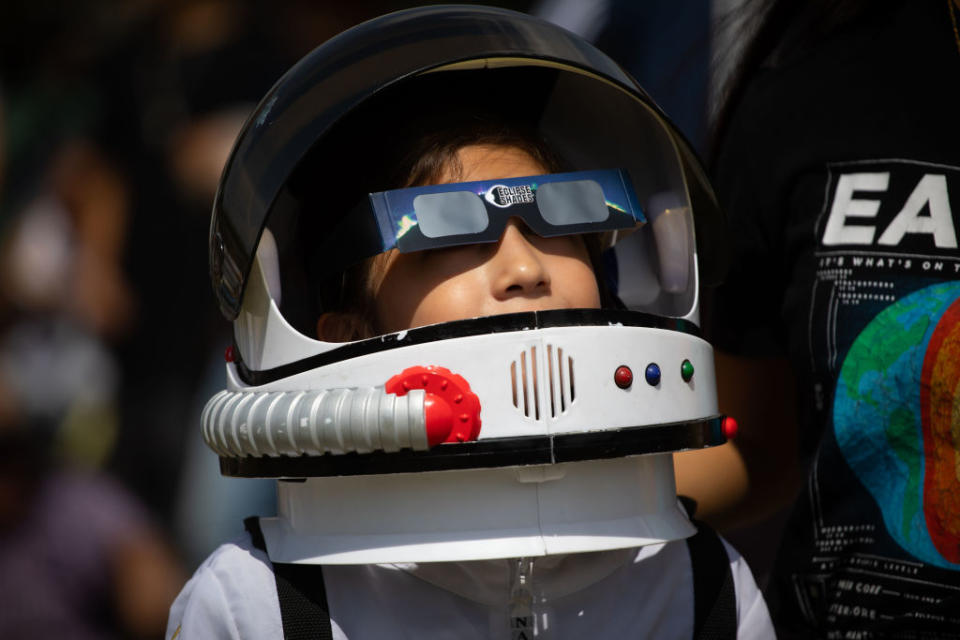
Photographer Daniel Cardenas captured this photo of a child wearing an astronaut costume while observing the eclipse from the National Autonomous University of Mexico (UNAM) in Mexico City, Mexico.
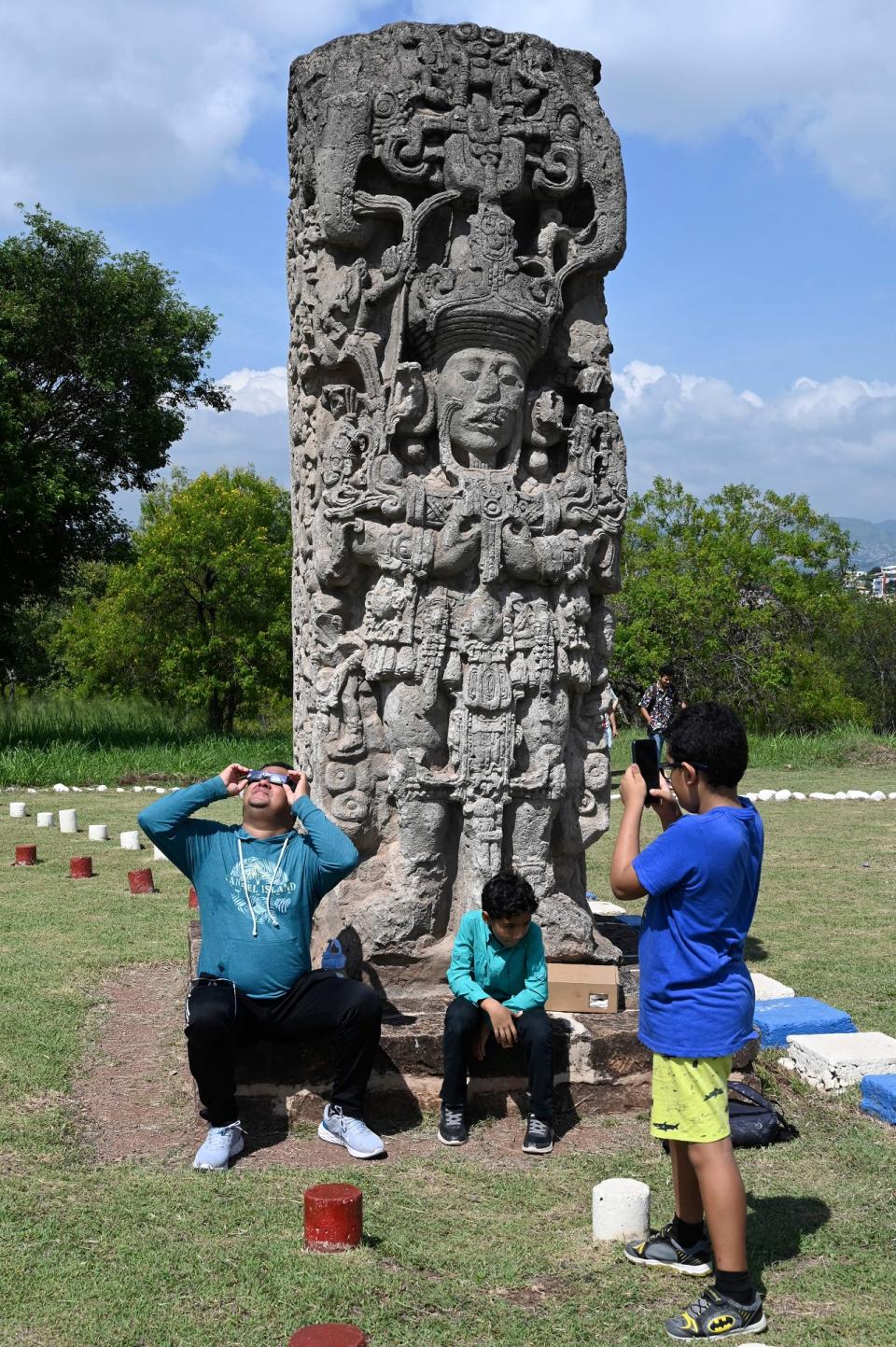
In Tegucigalpa, Honduras, spectators like this man and his children, sitting near a replica of a Mayan stela, gathered at the Astronomical Observatory of the National Autonomous University of Honduras to observe the eclipse.
Photographer Orlando Sierra captured this image for AFP and Getty Images.
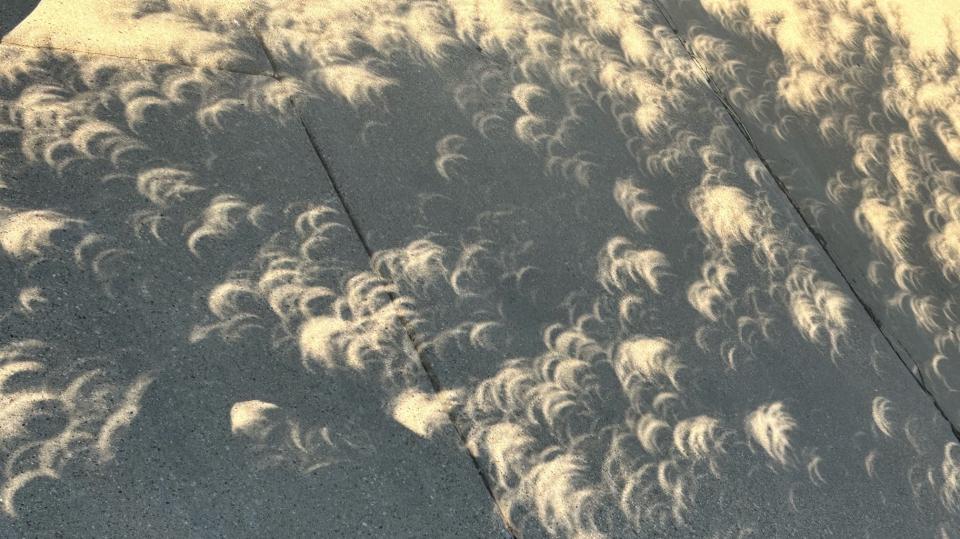
One strange effect of solar eclipse is the shadows they cast on the ground.
Eclipse watcher Nicole Edwards captured this view of the partial phase of an annular solar eclipse in the shadows of tree leaves in this view from Fort Worth, Texas on Oct. 14.

Skywatchers across the Americas enjoyed the annular solar eclipse.
Here photographer Ricardo Arduengo captured a photo of a woman using a kitchen colander to cast the shadow of the sun during the annular solar eclipse in Old San Juan, Puerto Rico on October 14, 2023.
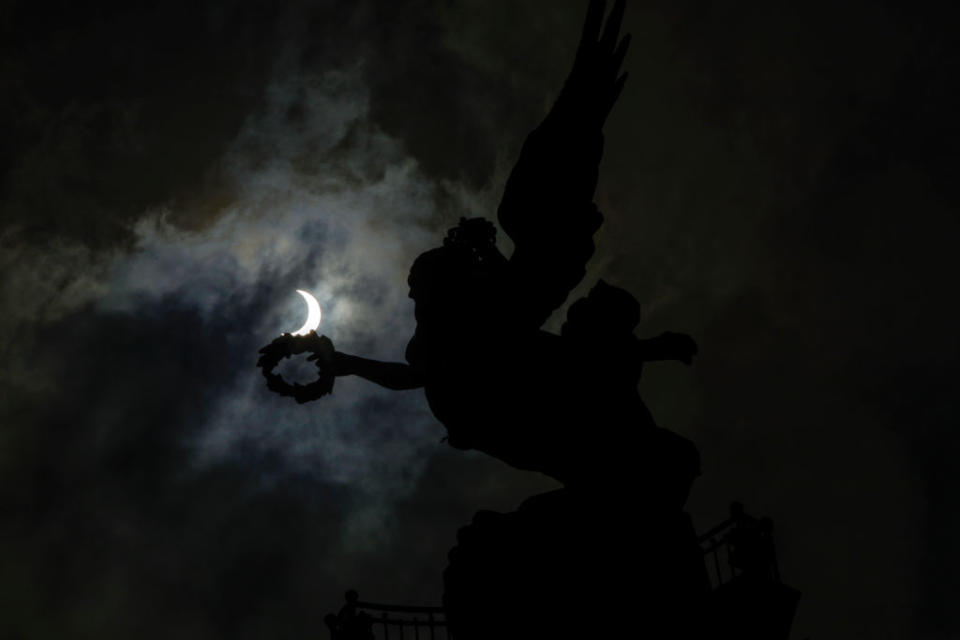
Photographer Gerardo Vieyra captured the annular solar eclipse rising behind the Angel of Independence in Mexico City.
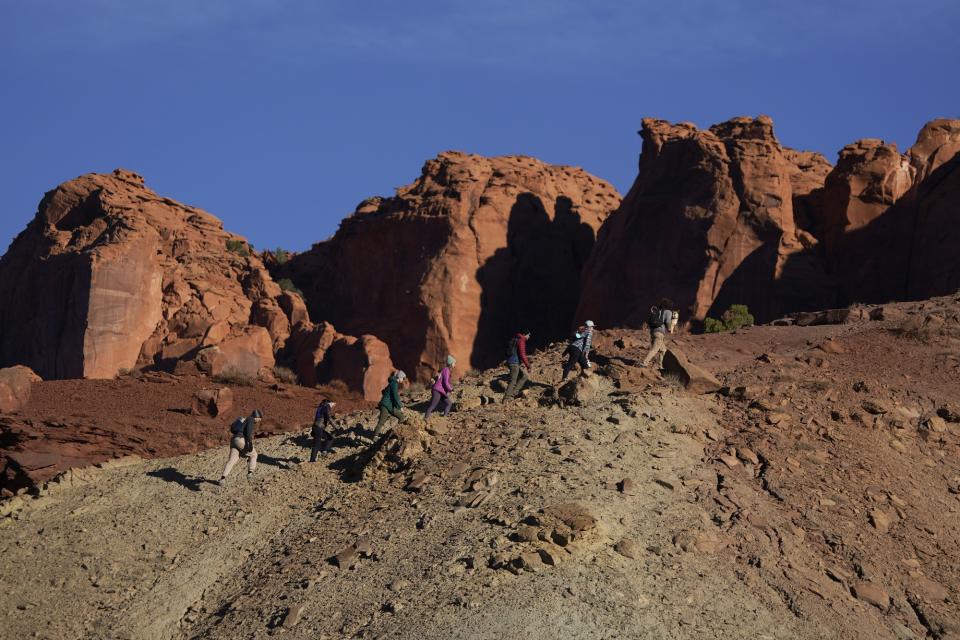
Many national parks opened their doors to eclipse chasers hoping for a weekend meeting of nature and a moon-sun celestial event.
Here, a group of people walk up a ridge at sunrise to find a spot to view the annular solar eclipse from Capitol Reef National Park in Utah as seen by photographer George Frey for Getty Images.
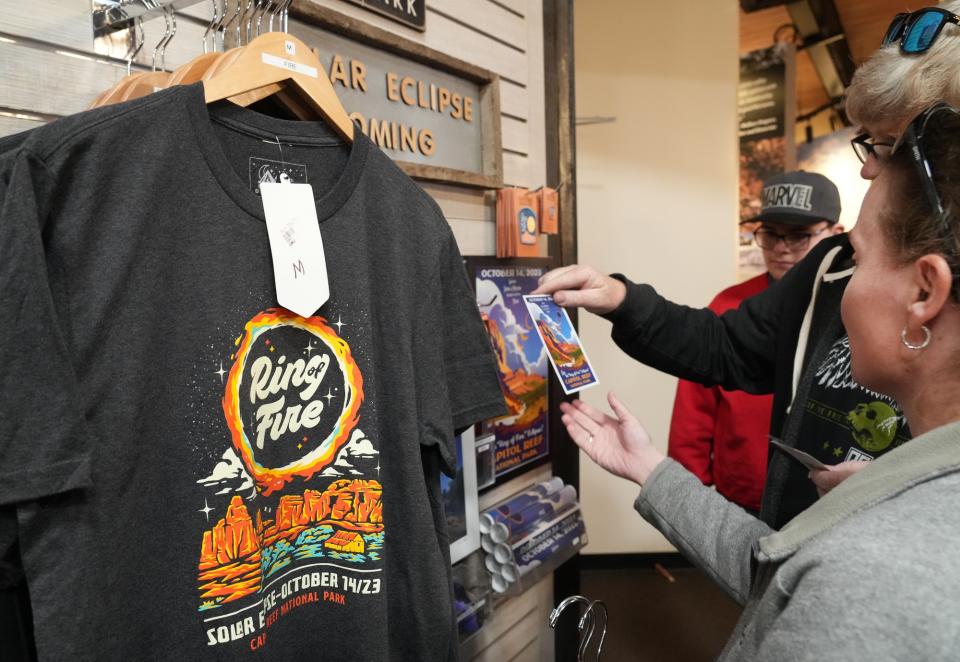
As with any spectator event, there was plenty of merchandise available for the solar eclipse. Here, people look over solar eclipse eclipse merchandise for sale in the headquarters gift store of Capitol Reef National Park in Utah on Oct. 13, one day before the eclipse. George Frey captured this photo as well.
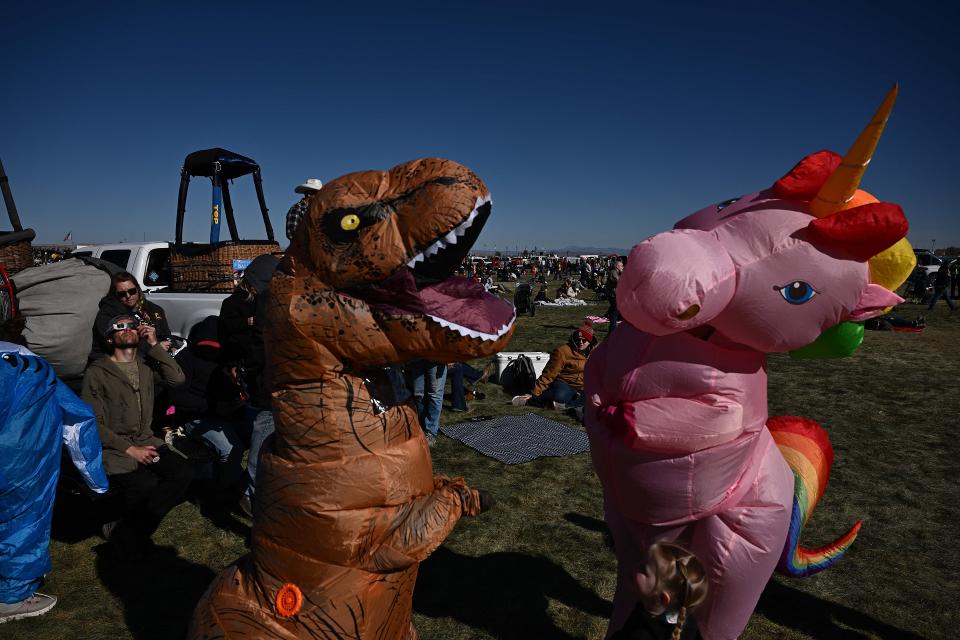
And then there was the zany, like these two spectators celebrating the annular solar eclipse by wearing dinosaur and unicorn costumes while attending the 51st Albuquerque International Balloon Fiesta in New Mexico. Patrick Fallon captured this photo.
Preparing for the next solar eclipse
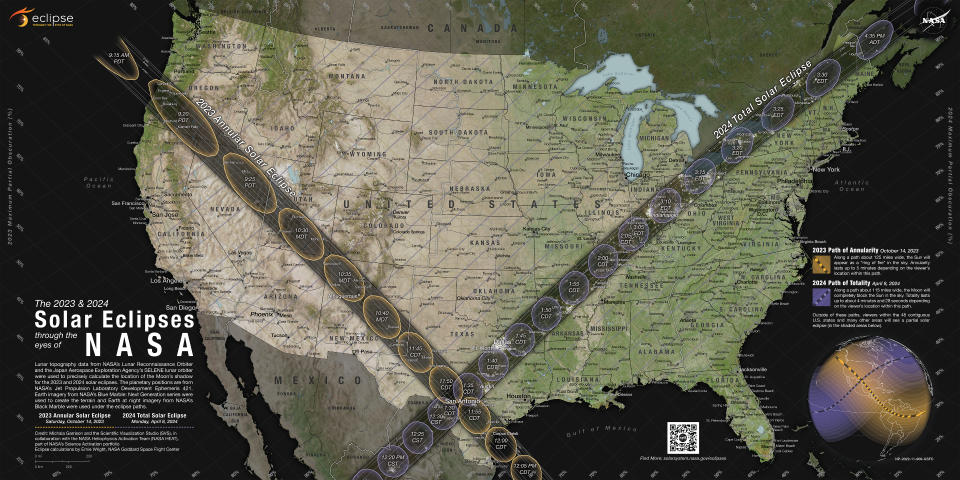
If all this has inspired you to get prepared for photographing the next solar eclipse — a total solar eclipse on April 8 — our how to photograph a solar eclipse guide may help. We also have guides on the best telescopes and the best binoculars to help you get a great view.
REMEMBER to NEVER look directly at the sun. To view this solar eclipse safely you must use solar filters at all times. Whether your location will experience a partial solar eclipse or an annular solar eclipse, the dangers are the same. Observers will need to wear solar eclipse glasses, and cameras, telescopes and binoculars must have solar filters placed in front of their lenses at all times.
Our how to observe the sun safely guide tells you everything you need to know about safe solar observations.
If you capture a photo of the annular eclipse and would like to share it with Space.com's readers, send your photo(s), comments, and your name and location to [email protected].
